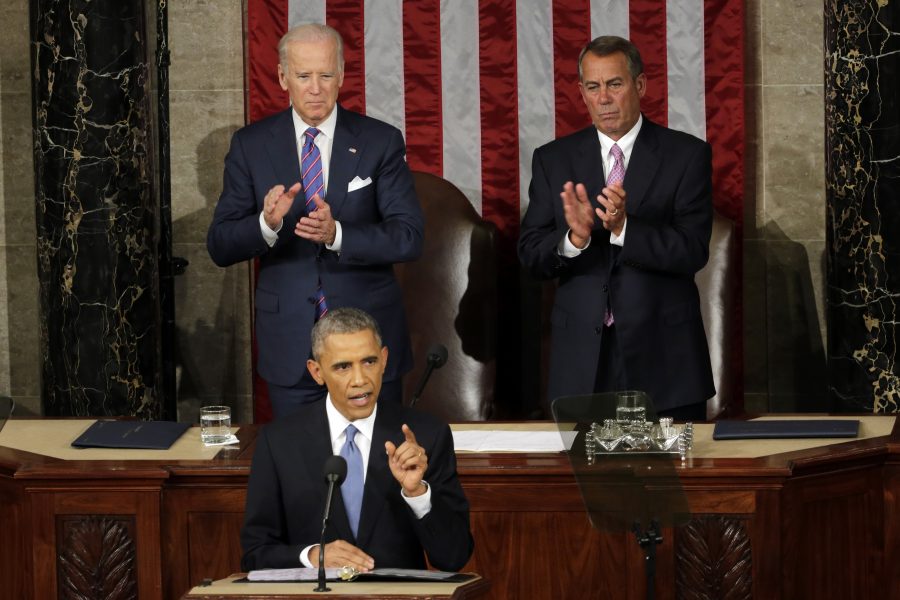Tuesday night's State of the Union address by President Barack Obama was reminiscent of — as President Lyndon B. Johnson was so fond of saying — grandma's nightgown. That is, it covered everything. In a sometimes rambling and hard-to-follow fashion, Obama laid out his legislative and political priorities for the remainder of his presidency. Of course, given the recalcitrant Republican majority in congress, none of these ideas are anything more than pipe dreams.
Most important, in our view, Obama reiterated his earlier proposals to allow Americans of all ages and backgrounds to attend community college with no cost to them. "Lower the cost of community college," Obama said, "to zero."
Obama also called for an ambitious plan to reconfigure the taxation scheme at the federal law, specifically by enacting a broad swath of tax cuts for the middle class in forms such as generous credits for childcare. The plan would pay for the relief by raising taxes on the more affluent Americans, particularly by considerably hiking the capital gains tax. At a time of growing inequality that threatens to tear apart the seams of the American dream, we stand by the President in his plan to not only address the crisis but allow most people to go home with more money in their pockets.
On other fronts, we were pleased to see Obama rehash some earlier commitments that are still important today. A major infrastructure bill is certainly a good start, though we would hope the Federal funds could be used for a myriad of purposes, both new roads and mass transit projects. Senator Joni Ernst (R-IA), who delivered the Republican response, made a point of dredging up the Keystone XL Pipeline, the construction of which is still held up in Congress. A pipeline is good, but like Obama said, a more expansive proposal would be even better.
Sadly, few-to-none of these good ideas will ever come to fruition, because of a Congress that cares about little other than scoring political points and staying in their Tea Party base's good graces. It would be naïve of us to think the proposals have a prayer of passage. But we hope they do nonetheless.
















